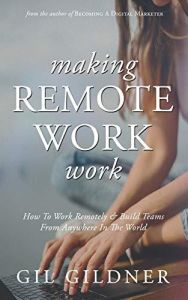Work from the beach, the mountains or your house. Work your own hours, as long as you get the job done. Until the Industrial Revolution, doing your job from home was a worker’s only option. Now, remote work may well dominate the labor landscape again. Increasingly, firms are allowing employees to work remotely and, with the onset of COVID-19, many companies and workers had no other option. Writing before the pandemic, Gil Gildner – cofounder of Discosloth, a fully remote marketing firm – explains everything companies and workers need to know about the pros and cons of virtual work and a virtual workforce.
Remote work is not new. It was the standard until the Industrial Revolution.
While many people assume that remote work is a relatively new phenomenon, it has a venerable pedigree. During most of recorded history, remote work – working from home – was the way most people earned their livings.
The Industrial Revolution changed that for good. As the world – and the world of work – transformed radically, most workers came to spend their days in factories or offices.
Advanced technology has enabled remote work’s resurgence.
As technology advanced, new tools, including the telegraph, the phone and the fax machine, made it possible for some people to work away from their offices. Initially, only a select few managers and employees could spend most of their time out of the office, including those who had to travel to visit various sub-offices or to see clients.
The computer and the proliferation of internet access meant more and more workers could connect from anywhere around the globe. Early remote workers were webmasters who maintained online forums and...
Gil Gildner cofounded Discosloth, a fully remote technical marketing firm, and has created web communities around acoustic music, cult movies, BMWs and vinyl records.




















Comment on this summary